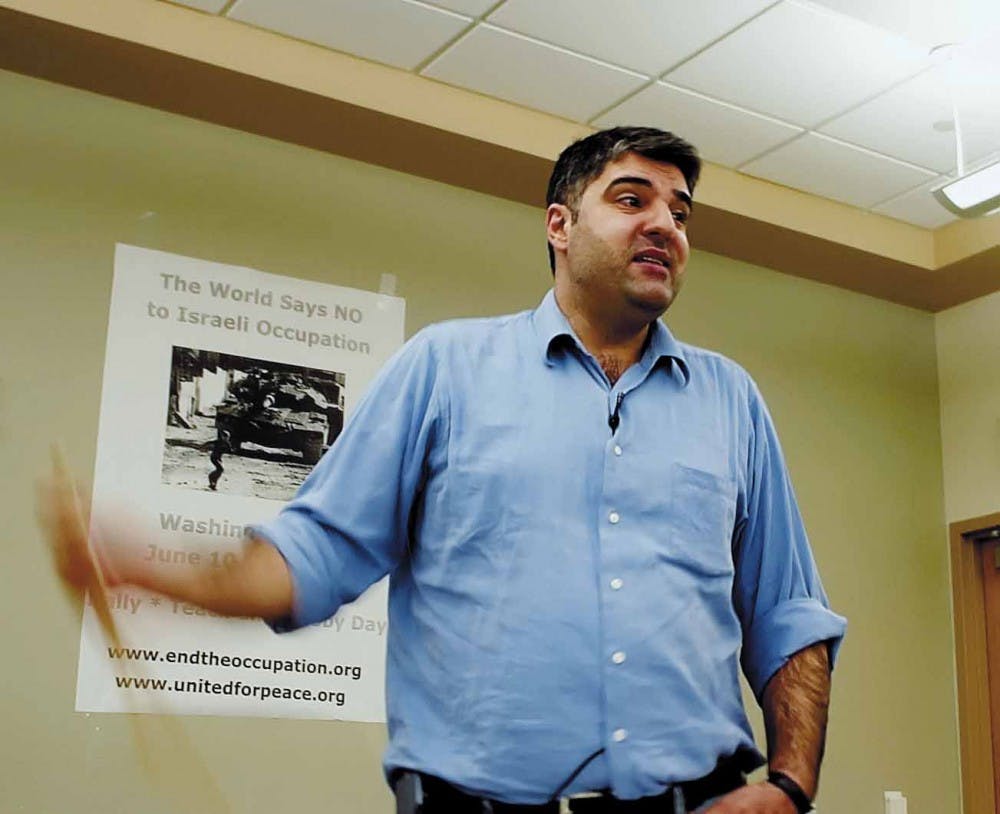by Bryan Gibel
Daily Lobo
A Palestinian youth organizer spoke at UNM on Saturday and called for nonviolence and dialogue between Israelis and Palestinians as a solution to the problems in the West Bank and the
Gaza Strip.
Hisham Jabi spoke to about 65 people in the SUB about the lives of young Palestinians and the political and socioeconomic situation in those two regions.
Get content from The Daily Lobo delivered to your inbox
Jabi works as a contractor for the U.S. Agency for International Development on programs for Palestinian youth in the
West Bank.
Jabi said the only way to resolve the Israeli-Palestinian conflict is through mutual respect and direct human interaction, not war.
"Our approach should be a human, grassroots, people-to-people approach," he said. "We can't just keep focusing on negatives. We have to stand up and talk with each other. All we are asking for is justice - justice for Jews and for Palestinians."
The event was sponsored by Justice First and the Salam
Coalition.
Jabi said there are about 450 obstacles and checkpoints in Israel's occupied territories that limit mobility for Palestinians.
Traveling the distance from Albuquerque to Santa Fe, a one hour trek, takes 3 1/2 to eight hours in the West Bank or the Gaza Strip, depending on how much inspection the government imposes, Jabi said.
"You can't travel on many roads at all without a special permit if you're not an Israeli settler," he said. "Even ambulances are held up."
The territory that Palestinians control in Israel's occupied territories is shrinking because of expanding Jewish settlements, Jabi said.
The land is not enough to create a viable Palestinian state, he said.
"Israel's idea is to give us an extremely small strip of land that connects isolated villages and to call it Palestine," he said. "Maybe we should use New Mexican terminology and call it a reservation."
Norm Assed, a Palestinian man in the audience, said the future of the West Bank and the Gaza Strip is uncertain.
Assed said there is a way to improve the situation.
"I'm 60 years old, and I don't want to die without seeing an independent Palestine," he said. "We need to speak to not only the American people, but also to the progressive Jewish community to seek partnerships constantly."
Stephanie Hiller, a Jewish woman in the audience, said the situation will be worked out when people realize aggression doesn't benefit anyone.
"Violent oppression reproduces violence," she said. "If we recognize that, then we can rise to a nonviolent and humane approach. Our hearts will come to a different place, and we will find new solutions to this deeply entrenched problem."






